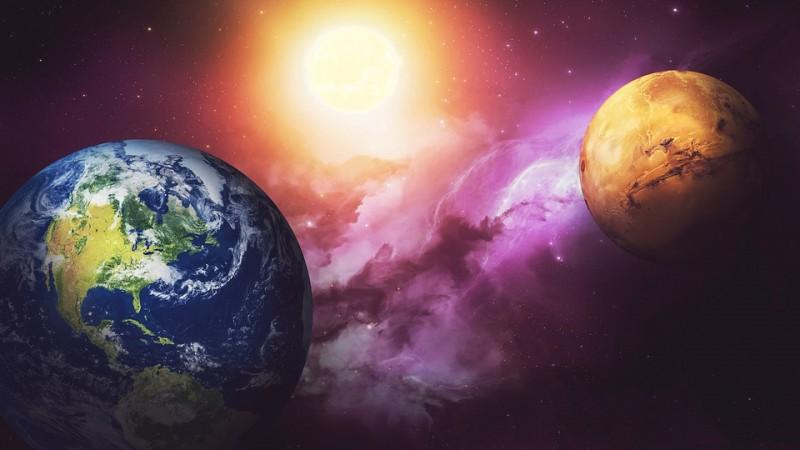
NASA astronomers have a major concern when it comes to human colonisation on Mars and it's about sex. Nobody is really sure how humans are going to reproduce in extreme conditions in space and the research on the same is still on.
Also Read: Chinese scientists to grow potatoes on Moon next year using this technique!
Spacefarers need to take various precautions to combat the extreme space conditions like harmful radiations on the Red Planet due to its thin atmosphere, low atmospheric pressure, icy cold climate during nights, the atmospheric composition of the planet and the dusty atmosphere.
What will happen if humans have sex in space remains a mystery. Researchers are curious to find out how radiations will impact reproduction on the Red Planet.
Assistant Professor Kris Lehnhardt from George Washington University said sex is one of the crucial aspects that need to be addressed, as reported by the Huffington Post.
"If we are talking about colonization, there is a key component to colonization that makes it possible and that is having babies, and this is something we have frankly never studied," Lehnhardt said in the video.
"If we want to become a spacefaring species and live in space permanently this is a crucial issue we need to address that has not been fully studied yet," Lehnhardt added.
Check out the entire webcast featuring Assistant Professor Kris Lehnhardt here:
Japanese scientists had carried out a study earlier this year, in January 2017, to find out whether freeze-dried mouse sperm could result in the birth of healthy offspring after being exposed to hazardous radiations on the ISS for 288 days. The radiation on the ISS is around a hundred times stronger compared to Earth.
It was found that, though the DNA of the sperm was slightly damaged due to the radiations, it resulted in the production of a similar number of embryos when compared to the sperm of the same mice on Earth, which possessed the ability to give birth to babies that would grow into fertile mice.
"The Japanese team have even suggested that it could lead to the first 'lunar sperm bank' allowing humanity to store samples on the Moon should a natural or manmade disaster take place on Earth," a Huffington Post report quoted.














